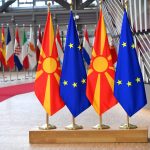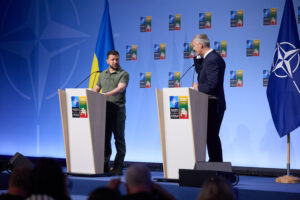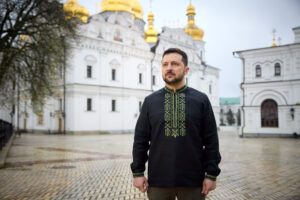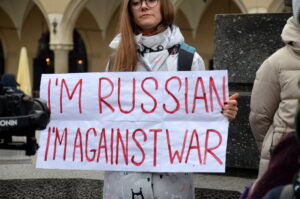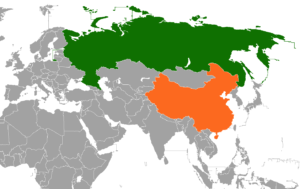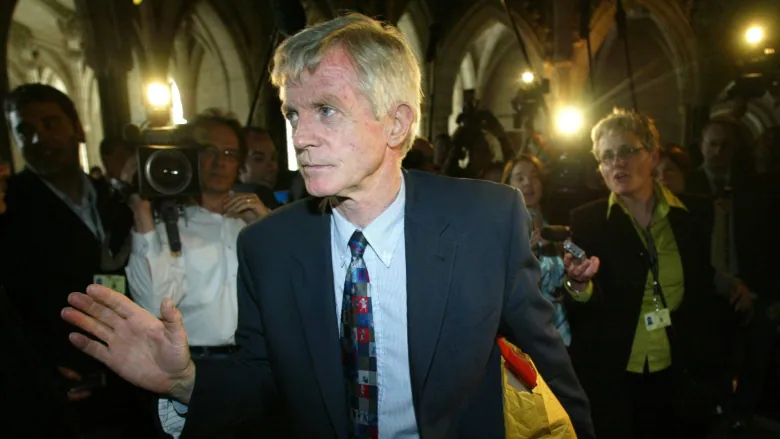
I first met David Kilgour at a Canadian Bar Association convention in Edmonton in the early 1980s. The event stands out in my memory because it was there that I got to know him. Earlier that year, Ian Nicholson, an associate of my law firm left Edmonton to join David in Ottawa as his assistant on Parliament Hill. Ian was our initial connection. I remember being impressed by David’s sincerity and kindness, but what touched me most was that seemingly out of nowhere, he boldly stood up at a meeting to nominate me to join the Canadian Board of Directors of the International Commission of Jurists. Perhaps Ian had told David about me, so he came to know more about me than I did about David. Whatever the reason, I was honoured that David as a Member of Parliament thought highly enough about me, a small-town lawyer from Edmonton, to nominate me to such an august body. He clearly had a bigger vision for my life than I did for myself. That began our long friendship over the years that followed.
As a Member of Parliament David often attended various human rights meetings and Ukrainian community events where we met up from time to time. He got to know me and my wife Ann quite well. I remember on one occasion when I was drawn away for a while leaving Ann on her own after a community event, when I returned, I found her with David having coffee. He had extended the courtesy of keeping her company while waiting for me to return. In fact, over the years they also had good discussions about world events together. He was very thoughtful and supportive in that way.
In the years that followed our friendship deepened. Occasionally when he came to Edmonton from Ottawa, we met for breakfast very early in the morning in a restaurant in his constituency of Edmonton Strathcona to discuss politics and community events. I was humbled by his extraordinary efforts to meet me on such occasions, his attentiveness and support for my views, and his eagerness to work together to make improvements wherever they could be made. That David as a Member of Parliament from Ottawa would make time to have breakfast with me to hear my views early in the morning made me feel important and valued. He cared, and paid attention to me and my thoughts. He respected me and was open to my ideas. He respected my dignity and value. His behaviour showed me how I should treat others. Our conversations provoked me to think deeply about what mattered in this life.
On occasion, I traveled to Ottawa to attend to some community matters and to see Members of Parliament on Parliament Hill. On those visits, when he could, David would allow me to use his office to make calls to other Members of Parliament and to make appointments to see them. He invited me to sit at his desk and had his staff assist me so I could make the most of my visits. As I sat at his desk, I noticed that under the plate of glass that covered it, in the lower right-hand corner, he discreetly kept a picture of someone who I assumed was important to him who had passed on. I believe it was his brother Donald. I was touched by the tenderness involved. It was an honour to have a glimpse into his private world to see how David kept the memory of this person close to his heart.
I do not know if he was the same with other ethnocultural communities, but regarding Ukrainians, David was so aware of the issues we faced that we considered him effectively one of us. Unlike most of his contemporaries in Parliament and elsewhere, David understood Ukraine’s political importance and did everything he could to help Ukraine implement democratic reforms to join Europe and NATO. In 2004 he travelled to Ukraine as an election observer at the time of the heated presidential runoff between Viktor Yushchenko and Viktor Yanukovych. I flew with him on the chartered aircraft on the way home after that election. Two things stood out for me in our discussion on that flight. The first was that he drew my attention to how the Senators and other Canadian government personnel in our observers’ mission occupied the first-class section of the plane as if it was reserved for them. He did not like the display of entitlement and elitism involved. His observation opened my eyes and I had to agree. The other was that David maintained a diary throughout his life, recording his important thoughts and events to pass on to others. David’s children now have a priceless legacy to refer to in reflecting on his life.
Whether it was his work supporting Ukraine’s right to its political self-determination, his work with David Matas supporting the Falun Gong who have been persecuted by the Chinese government and whose dissidents have been arrested, murdered and their body parts sold on the black market, or Indo-Fijian refugees coming to Canada following a coup in Fiji, David consistently displayed the courage of his convictions. He showed the same courage when he crossed the floor in Parliament when he disagreed with government policy. Not many have such courage. Eventually, his fight for human rights won David a nomination for the Nobel Peace Prize, an honour few in the world will experience. His moral strength added gravitas to the stature of anyone who worked with him in any of his causes.
I remember our meeting at their home in Ottawa on one occasion when my wife Ann and I visited David and his beautiful wife Laura. They were gracious and greeted us warmly. I regret that I never met any of the other members of his family but was very impressed by the presentations of his children Tierra, Eileen, Hilary, Margo, and Dave in the memorial service presented online, particularly Tierra’s sharing of His Holiness the Dalai Lama’s thoughts about the purpose of life being happiness.
In the latter part of his life, David supported us when we created the Centre for Eastern European Democracy (CEED) in Toronto and attended our virtual discussions to participate in formulating our mission. Indeed, he called me from his hospital bed to apologize for not being able to attend a CEED meeting. I did not quite realize it at that moment, but he was saying goodbye for the last time.
While we mourn the loss of someone as important as David Kilgour in our lives, there is a way to see his life that can ease our sorrow. In a regional part of Ukraine, a group called Lemkos held the belief that when someone was born a new star appeared in the sky, and when someone died the star disappeared. Looking at life in that way we might say that in the darkness of millions of years of creation, for a few brief decades David Kilgour’s star lit up our sky. While he is no longer with us, like a shooting star his life flashed by leaving us with a brilliant memory of his presence with us.
There is a saying that who you are speaks so loudly I can barely hear what you are saying. It was not what David said, but who he was and what he did that left the example for all of us to follow. I don’t know a better way of being a Christian than to model the path that Christ left for us to follow. It seems to me that is what David Kilgour did all his life. May he rest in peace.
Andy J. Semotiuk is a U.S. and Canadian lawyer and a member of the New York and California bars in the U.S. and Ontario and B.C. bars in Canada. A former U.N. Correspondent stationed in New York, Mr. Semotiuk was also a former member of the Canadian Human Rights Commission’s Tribunal Panel. He is currently the President of the Centre for Eastern European Democracy. For more see www.CEEDWEB.ca.
